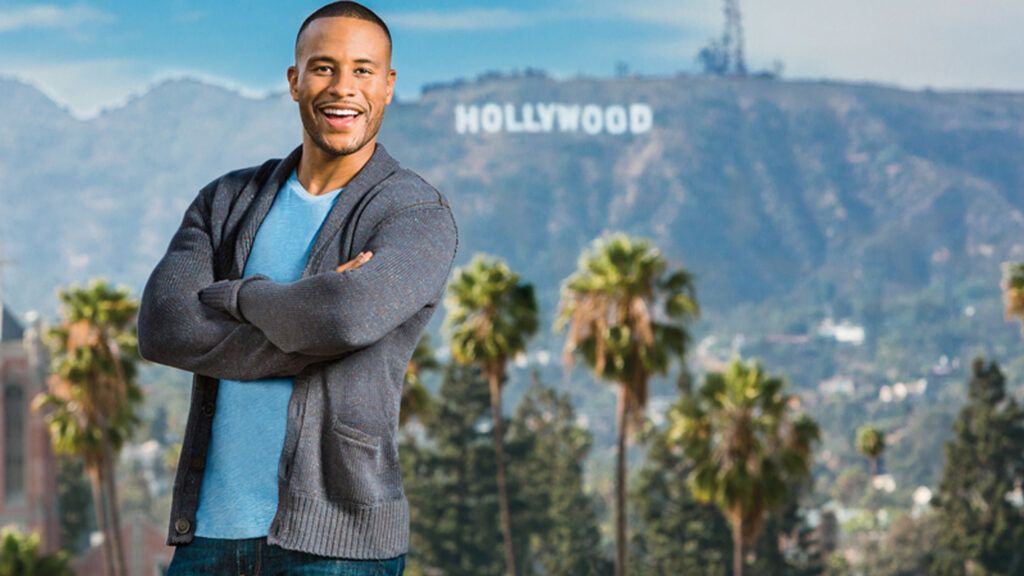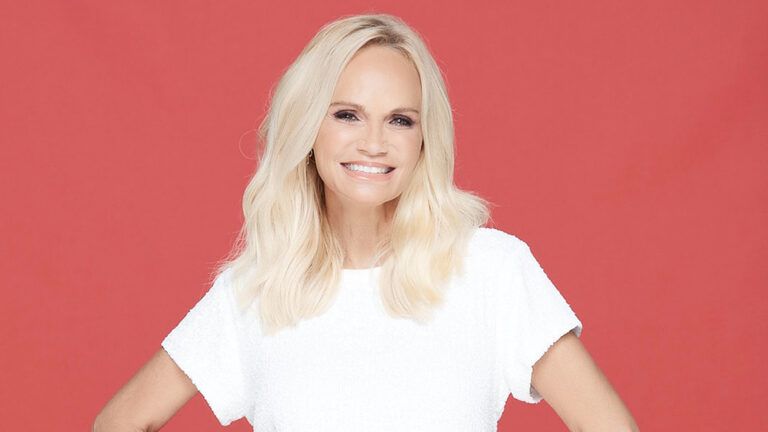I work in Hollywood. maybe you’ve seen some of the films I’ve worked on—The Pursuit of Happyness, The Karate Kid, Hancock, Jumping the Broom and Heaven Is for Real, to name a few. But you might not recognize me. That’s because I’m not an actor. I’m the guy behind the scenes.
As a former senior vice president of production for Columbia Pictures and the current president and CEO of the newly formed Franklin Entertainment, my job is to get films made. I’ve shepherded productions from beginning to end.
I’m proud to help produce family-oriented, uplifting and inspirational films. It’s what I’ve dreamed of doing since I was a kid. Life is good, and I feel very blessed. But I didn’t always feel that way. My journey was complicated and sometimes painful.
It goes back to my dad, Donald Ray Franklin I. He was handsome, outgoing, charming—the center of attention at social gatherings, the kind of man people gravitated toward. He had ambition and the intelligence to match it. He was working his way up the corporate ladder at UPS. Fast.
That meant going on a lot of after-work outings, where drinking was a way for an up-and-coming young executive to fit in with the old guard, the established successes. He should have known he couldn’t handle it, with his family history. His father and two of his brothers were alcoholics.
But that’s the way it always happens. No one wants to be an alcoholic. Dad thought he had it under control, I guess.
He didn’t. He stayed out later and later and would come home too drunk to make it to work in the morning. Finally he was fired from UPS. My mom, Paulette, had to fill the gaps.
Somehow she managed to raise me and my brothers—Donald Ray II and David Brandon—and hold down a receptionist job, all while trying to deal with Dad and his addiction. M y early childhood memories were disjointed and hazy, scattered snapshots of family dysfunction.
I remember Dad staggering through the front door one night, reeking of booze. Mom hid the car keys because she didn’t want him to head back out for another round. He flew into a rage. He pinned her down on their bed.
“Give me those keys!” he bellowed. Mom resisted. Dad yelled louder. I stood frozen in the corner, helpless, petrified.
Mom would beg God to take away Dad’s desire to drink, ask him to heal our family, but things only got worse. Dad’s drunken rages were frequent. He would steal Mom’s hard-earned money—money that was supposed to keep food on our table and a roof over our heads—for his binges.
He didn’t seem to care about us anymore, or care about anything but getting drunk.
Then one day, Dad left. I was too young to understand it fully, but I knew that something big had happened. Days, weeks, months went by—and still no sign of him. But Mom never gave up on him. She’d always pray for him. I never heard her say one negative thing about him.
I was nine years old when all of a sudden Dad started coming around again, like an answer to Mom’s prayers. That’s why she never said anything nasty about him. She knew he would come back.
And he was different. He was sober. He found a job and a place to stay. He even began going to church. It was really great for a while, until he had a massive heart attack.
Years before, doctors had said he needed a heart transplant. But he had ignored their advice, and the years of alcohol and nicotine abuse damaged his heart even further.
My mother brought my brothers and me to see Dad in the hospital the next day after school. We spent the afternoon together. Before we left, he had us all huddle close to him so he could hug us.
“As soon as I get out of here we’re going to go to church together,” he said. “We’re going to be a family again.” I hugged him with all my strength, wanting desperately to believe that, needing to believe it.
The next day, just as we were walking out the door for another visit with Dad, the phone rang. Mom answered. “No!” she screamed. “Please, no!” She hung up, sobbing. Dad had suffered another heart attack. He was dead, at only 36.
Mom took us to the hospital to see him one last time. We walked through the double doors of the gray, sterile morgue. There he was, my father, lying on a metal slab, his eyes closed. I might have thought he was sleeping if it hadn’t been for the eerie stillness of his body.
“Kiss your dad goodbye,” Mom said softly. I watched as Donald Ray kissed him, and then it was my turn. When I stepped forward I tried not to hesitate. I leaned in and kissed my father on his forehead. He was cold as ice.
I stepped back, feeling a chill inside, as if something deep within me had died with him.
How could God let this happen? Why did he answer Mom’s prayers only to take Dad anyway? Mom always told us that God had a plan for everyone, but allowing a man’s life to end just when he was putting it back together? That made no sense at all.
Mom ushered us out. I took one last look back at my father, lying on that cold slab, a tableau of lost promise. As the morgue door swung shut, sealing the distance between us, I vowed, That is not going to happen to me. I will make something of myself.
I buried my anger, hurt and confusion inside, and threw myself into academics and activities. As a teenager, I had something planned every waking moment. I helped out at the church led by my uncle, Dr. D. J. Williams, my grandmother’s brother-in-law, and preached my first sermon at 15.
I developed an interest in theater and got involved in the program at school. I didn’t just watch movies and television shows, I studied them, wanting to figure out how stories and scenes were put together, wanting to know how to move and inspire people through entertainment, the way The Cosby Show and The Color Purple inspired me.
By the time I entered college, at the University of Southern California, my ambition was at full throttle. I became a business-administration major with a cinema-television minor, a hybrid education to complement my Hollywood aspirations.
Instead of going home for breaks and holidays, I stayed in Los Angeles and worked, some summers holding three jobs just to make ends meet. I was that driven.
During my years at USC, I was an intern for Will Smith’s management and production company. When I graduated, I became his producing partner’s assistant.
I showed such potential, he entrusted me with responsibilities typically given to executives. I read scripts and attended development meetings and after-work events, where connections were made.
My life was not so different from my dad’s early in his corporate career. It wasn’t lost on me that I’d inherited his ambition and his head for business. But that meant I might have inherited his weaknesses too, so I did everything I could to make sure I didn’t go down the road he did.
One night I stayed late at work and mapped out a long-term plan for myself, each rung up the ladder clearly marked with age and title. No chance I’d lose my way. I would be a junior executive by the time I turned 25. I would become vice president of a film company at 30.
I had everything set to happen before I hit the age of 36. With my drive and work ethic, what could go wrong?
But 18 months later, I was still an assistant. I was working harder than ever but I wasn’t going anywhere. I was stuck. Frustrated. Miserable. Angry.
Was this God’s plan for me? Wasn’t my dedication to him and to my career enough to show I was different from my dad? I was going to church, praying regularly, preaching whenever my uncle called on me.
Every task I put my hand to, I accomplished as close to perfection as I could. Why wasn’t I getting ahead? Was there something about me that wasn’t good enough?
One morning when I got to the office, I felt frustration and depression overwhelming me. I escaped to a quiet bathroom and locked myself in a stall. Call it my emergency prayer closet, but that’s where I had it out with God. “You said I can come boldly before you. Well, here I am.…”
I let everything out, my fears and my desires, my hurt and my confusion.
I’d been racing to beat the clock, determined to get to the top of the ladder before the age of 36.
Thirty-six. When everything ended so tragically for my dad.
Was fear driving me instead of faith? Because I was scared my time would be cut short before I fulfilled my potential? I’d thought I was doing what God wanted, but my perspective was off-kilter. My ambition needed to be rooted in faith, not fear.
I took a deep breath. “God, I need you to move today,” I said. “I can’t keep living like this.”
That evening, my boss called me into his office to tell me it was time for me to move on. I was shocked, but I realized God had heard my prayer and had answered. After a series of unproductive interviews I decided it was time to quit and just step out in faith.
Less than a week later, I was working as a junior executive at a prolific production company, Edmonds Entertainment. I’ve always made sure to set aside time to be in God’s presence, reading the Bible daily and honoring the Sabbath, even if it meant missing an evening shoot.
The more I’ve surrendered to God, the more he’s moved on my behalf. Six months after my thirtieth birthday, I landed the vice-president position I’d aimed for. That six-month delay was like a little reminder from God: My time, son, not yours.
Now, at 36, I’ve just been given the opportunity to run my own production company. I’m achieving my dreams, going on faith, not fear, which is what God wanted me to understand all along.
I always wonder what it would be like if my dad were still around to experience all of this with me. I hope that he’d be proud of me and my brothers. Yet I’m thankful for my Heavenly Father. I know that first and foremost, I am his son, and I will go anywhere he leads.
Did you enjoy this story? Subscribe to Guideposts magazine.





